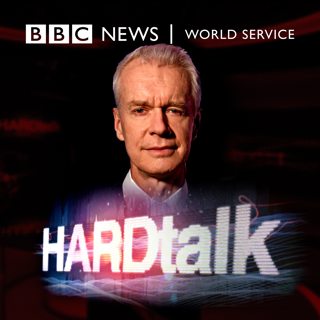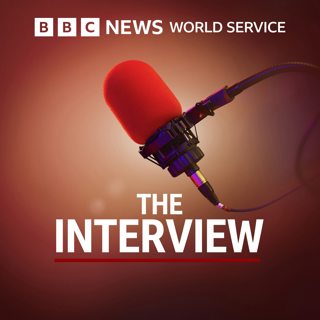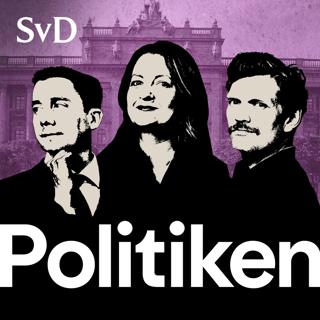
Aimee Mullins – Athlete, actor and model
Hardtalk is in New York City with a guest who is a woman who has spent her life challenging assumptions that go with the label 'physically disabled'. Aimee Mullins had both of her legs amputated below the knee when she was just a year old. She went on to become a champion athlete, an actor and highly paid model. She has been feted as an inspiration across America. Stephen Sackur asks, What is the real lesson of the remarkable story of Aimee Mullins?(Image: Aimee Mullins. Credit: Reuters)
21 Mars 201223min

Otis Williams - The Temptations
Otis Williams is the sole constant in the life of one of the most successful groups in Motown history. He formed The Temptations in 1961, and the record sales tell a story of extraordinary success.If rock and roll was about sex and drugs, Motown was all that and more. So how has he sidestepped the cocaine addiction, the drink and the depression that killed other members of his group? Did he ever feel he got his just rewards for so much success? And when will he finally decide he has had enough?(Image: Otis Williams. Credit: Hulton Archive/Getty Images)
19 Mars 201223min

Mohamed Waheed - President of the Maldives
The Maldives was plunged into political crisis when the former president Mohamed Nasheed resigned, claiming to have been forced out of his position. He was succeeded by his former vice president - Mohamed Waheed - who denies allegations of taking part in a coup. President Waheed is now building a government of national unity, but with tensions still running high between him and supporters of his predecessor, how safe is the island nation's democracy?(Image: Maldivian President Mohamed Waheed Hassan. Credit: Associated Press)
16 Mars 201223min

Abdel El-Menway - Former Head of Egyptian TV
A year has passed since the uprising that ended the 30-year rule of Egypt's former president, Hosni Mubarak. Since then the country has struggled to establish democracy and credible elections under the control of the Supreme Council of the Armed Forces. Human rights abuses are continuing and the animosity between pro-democracy activists and the Establishment is escalating. Abdel El-Menawy is the former head of Egyptian television. He helped draft Hosni Mubarak's final speech and has written a book detailing the final days of his rule. Presented by Stephen Sackur.(Image: An Egyptian boy wearing an Egyptian national flag in Tharir Square. Credit: Getty Images)
14 Mars 201223min

Said Ferjani - Ennahda political party, Tunisia
Tunisia is the first Arab nation to be transformed by people power but how successful has the transition to democracy been? Stephen Sackur talks to Said Ferjani who is a key figure in the Ennahda Movement - the moderate Islamist political party which dominates the democratically elected Tunisian government. Ennahda says it is committed to building a Muslim democracy. Is Tunisia a model which the rest of the Arab world can follow?
12 Mars 201223min

Moncef Marzouki - President of Tunisia
Hardtalk is in Tunisia a year after the revolution which gave birth to the Arab Spring. Stephen Sackur meets Moncef Marzouki - a man who has undergone an extraordinary transformation from political prisoner and dissident exile to president of the Republic. He now heads a coalition government of Islamists and secularists. The country has become the test bed for the new politics of the Arab world. Can Tunisia make a success of its revolution?(Image: Tunisian President Moncef Marzouki. Credit: AFP/Getty Images)
9 Mars 201223min

Jacqueline Wilson - Children's author
Over the past ten years Jacqueline Wilson has been the most borrowed author from British libraries. She's sold 30 million of her books just in the UK - and written nearly a hundred of them over the years - girls love them. They almost always focus on a young girl in a difficult family usually being brought up single-handedly by her mother, sometimes with an abusive stepfather. And often featuring drink or drugs. So why does she draw on such bleak territory?Jacqueline Wilson talks to Sarah Montague
7 Mars 201223min

Nana Akufo-Addo - Ghanaian presidential candidate
Ghana has been hailed as a shining example to all of Africa - a model of democracy, decent governance and responsible economic management in a continent struggling to fulfil its potential. But if Ghana looks like a success story to outsiders, how does it look to Ghanaians themselves?Nana Akufo-Addo is the leader of the main opposition party and candidate for president. Stephen Sackur asks him if Ghana can use its resource wealth and inward investment to benefit the many, not just a few.
5 Mars 201223min






















